IUFoST 21st World Congress of Food Science & Technology Future of Food: Innovation, Sustainability & Health
-, Singapore
31/10/2022 – 03/11/2022
8:30 am – 5:30 pm
Marina Bay Sands Expo & Convention Centre
#protein #foodomics #foodpackaging
This session will be chaired by Prof. Hannelore Daniel, Technical University of Munich.

Prof. Hannelore Daniel, Professor Emerita (School of Life Sciences), Technical University of Munich (TUM), Germany. Prof. Daniel held as her last position - chair and director in Human Nutrition at the TUM, Germany. Her main research interests have been the genetic, molecular, and cellular basis of mammalian metabolism. This research led her into nutrigenomics and personalized nutrition.
Prof. Daniel is a nutrition expert by training and worked in Germany, UK and the USA. She is a member of the German National Academy of Sciences and an advisor for national and international funding agencies, research centres and the EU commission. She also chaired the scientific advisory board of the EU Joint Programming Initiative “A healthy diet for a healthy life” and was a member of the national Bioeconomy council in Germany. She received numerous scientific awards including the "Pro meritis-Award" as the most prestigious science award in the state of Bavaria. Prof. Daniel studied nutritional sciences at Justus Liebig University in Giessen. She received her doctorate in 1982.
 Dr. Kerr Dow is Co-Chair of the ILSI Global Board. He retired in 2020 as Vice President, Research and Development from Cargill Inc., where he led a scientific organization covering Technical Service, Research, Product & Process Development, Scientific and Regulatory Affairs, Intellectual Asset Management and Food Applications, across North America, Europe, Latin America and Asia. Before joining Cargill in January 2007, Kerr held the position of Vice President, Global Innovation and Quality and Chief Technical Officer of the H.J. Heinz Company.
Dr. Kerr Dow is Co-Chair of the ILSI Global Board. He retired in 2020 as Vice President, Research and Development from Cargill Inc., where he led a scientific organization covering Technical Service, Research, Product & Process Development, Scientific and Regulatory Affairs, Intellectual Asset Management and Food Applications, across North America, Europe, Latin America and Asia. Before joining Cargill in January 2007, Kerr held the position of Vice President, Global Innovation and Quality and Chief Technical Officer of the H.J. Heinz Company.
Future of Protein
 Prof. Michelle Colgrave, Professor, Future Protein Mission Leader, CSIRO, Australia
Prof. Michelle Colgrave, Professor, Future Protein Mission Leader, CSIRO, Australia
Estimates predict that 70 per cent more food will be required to feed the growing global population which will reach 9.7 billion by 2050. The challenge will be how to meet this global food gap while maintaining our planet’s health. Australia’s traditional animal and plant protein offer an opportunity to address this gap, with emerging sources of protein seen as complementary. We are witnessing changing dietary patterns, with increasing numbers of flexitarians, due to concerns over the environment, animal welfare and personal health and nutrition. In response to the growing demand for protein, technologists have been searching for cost-effective, resource-efficient and environmentally friendly protein technologies and solutions that can support traditional industries or create new industries. In this presentation, the opportunities and challenges in growing Australia’s protein industries will be discussed.
Issues for Protein and Health – Identifying the Gaps
 Prof. Christiani Jeyakumar Henry, Deputy Executive Director, SIFBI /CNRC, Singapore
Prof. Christiani Jeyakumar Henry, Deputy Executive Director, SIFBI /CNRC, Singapore
Proteins are essential components for human life. Historically, our needs for protein have been met by the consumption of animal meat, fish, poultry, whole legumes, and cereals. With the global increase in the production of alternative protein-based foods, our access to protein foods has been revolutionized. Whilst embracing the new technologies used in the production of alternative protein foods, it is important for us to understand the nutritional, and physiological impact that the transition from eating conventional protein sources to the consumption of alternative proteins may have. This presentation will showcase and highlight the opportunities and challenges we face in the development of next-generation alternative proteins that not only have excellent taste, texture, and sensory properties but critically, have nutritional and health advantages. With increasing global population, we also need to consider how the “alternative protein” revolution could also include the nutritional needs of the less fortunate that approximate 3 billion people. This understanding will enable the next generation of alternative proteins to be widely accepted in our quest for planetary and human health.
Bioprocessing for Innovative Alternative Proteins – Cultivated meat, fermentation-derived products & plant-based meat alternatives
 Dr. Deepak Choudhury, Group Leader & Senior Scientist, Biomanufacturing Technology, Bioprocessing Technology Institute (BTI), A*STAR, Singapore
Dr. Deepak Choudhury, Group Leader & Senior Scientist, Biomanufacturing Technology, Bioprocessing Technology Institute (BTI), A*STAR, Singapore
It won’t be an overstatement to say that innovations in Alternative Proteins have taken the world by storm. There are increasing demands from informed consumers for nutritious, delicious, affordable, and easily accessible sources of alternative proteins as traditional products. As per the Good Food Institute (GFI) estimates, the alternative proteins companies have raised a total of $11.1 billion since 2010, half of which has been raised in 2021 itself! The heart of the alternative proteins’ revolution lies in the bioprocessing of relevant cells, especially for cultivated meat and fermentation-derived products. The speaker will quickly dive into innovative alternative protein-based product development, vital technological challenges, and unique proposed solutions to make the scale-up of alternative proteins a reality. The session is proposed to touch upon aspects of cells, media, scaffolds, and bioreactor hardware development, as well as how fermentation is exploited as a critical technical tool to produce various ingredients.
This session will be chaired by Mr. Geoffry Smith, President of ILSI SEA Region.
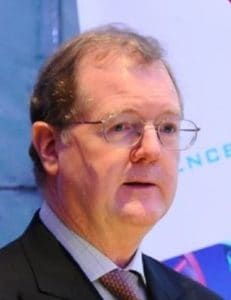 Mr. Geoffry Smith is President of ILSI Southeast Asia Region based in Singapore, and a Representative of the branch to the ILSI Global Assembly. He is also the Chairman of the Essential Micronutrients Foundation, a non-profit organization which addresses micronutrient deficiencies globally as a public health issue. In addition, he is Director of Nutrition Strategies International which deals with food and nutrition issues in developing countries. Mr. Smith serves as a member of the editorial board of the journal Food and Nutrition Bulletin. Prior to his current positions, Mr. Smith was the Global Director, Health Chelates for Akzo Nobel Functional Chemicals, and directed the global business for these compounds in food and nutrition as well as pharmaceutical applications. He was responsible for the global project within Akzo Nobel addressing iron deficiency anemia.
Mr. Geoffry Smith is President of ILSI Southeast Asia Region based in Singapore, and a Representative of the branch to the ILSI Global Assembly. He is also the Chairman of the Essential Micronutrients Foundation, a non-profit organization which addresses micronutrient deficiencies globally as a public health issue. In addition, he is Director of Nutrition Strategies International which deals with food and nutrition issues in developing countries. Mr. Smith serves as a member of the editorial board of the journal Food and Nutrition Bulletin. Prior to his current positions, Mr. Smith was the Global Director, Health Chelates for Akzo Nobel Functional Chemicals, and directed the global business for these compounds in food and nutrition as well as pharmaceutical applications. He was responsible for the global project within Akzo Nobel addressing iron deficiency anemia.
Proteomics – a versatile tool for revealing protein food value, allergenicity and food pathogens
 Prof. Michelle Colgrave, Professor, Future Protein Mission Leader, CSIRO, Australia
Prof. Michelle Colgrave, Professor, Future Protein Mission Leader, CSIRO, Australia
A major challenge facing the world is providing protein security in the face of a growing global population. To this end, we have started exploring different crops and food sources from pulses to insects to algae and more. As we pivot towards these under-utilized resources, the potential exists for the increasing prevalence of allergy or cross-reactivity. Soy is a mainstay of the plant protein ingredient market, but new plant protein sources are emerging. For instance, lupin seeds possess high protein content (35-44%) and many health-promoting benefits (lowering cholesterol and blood pressure, managing glucose levels). But lupin also contains proteins that can trigger life-threatening anaphylaxis. Another complementary, sustainable source of protein to feed the world’s growing population is insects. Insects have been consumed by people for millennia, but belong to the arthropod family, like crustaceans. Crustacean (shellfish) allergies are both relatively common and potentially severe; hence, the cross-reactivity of the immune system with insect proteins (e.g., tropomyosin and arginine kinase) is a potential health concern. The development of insects for food requires technology to explore their allergenic potential. In this presentation, the role of proteomics as a powerful tool to characterize both nutritional and antinutritional proteins in emerging protein sources will be discussed.
The intergenerational landscape of the human circulatory lipidome during pregnancy and early life
 Prof. Markus Wenk, Professor, Yong Loo Lin School of Medicine, National University of Singapore, Singapore
Prof. Markus Wenk, Professor, Yong Loo Lin School of Medicine, National University of Singapore, Singapore
Pregnancy and early child development are characterised by profound changes in physiology and metabolism. Here I will highlight results from our recent biochemical characterization of large Singapore birth cohorts. Mass spectrometry-based lipidomics was used to measure hundreds of circulating lipid metabolites in mothers and their offspring until early childhood. We have also characterized inter- and intra-individual (morning versus evening) variability of breastmilk. Collectively, these studies are providing valuable information maps to advance our knowledge in the fields of nutritional science, endocrinology, and pediatrics.
Measuring the health effects of food by metabolomics and other omics sciences: An example using volatilomics of several Zingiberaceae spices from Indonesia
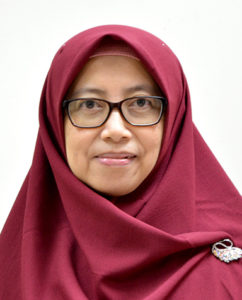 Dr. Nancy Dewi Yuliana, Associate Professor, Department of Food Science and Technology, IPB University, Indonesia
Dr. Nancy Dewi Yuliana, Associate Professor, Department of Food Science and Technology, IPB University, Indonesia
Metabolomics is one of the emerging biomarker discovery tools that has received a lot of interest. It enables systematic investigation of a complex mixture, such as a botanical preparation or food product, which may be linked to the results of biological testing systems to identify active principles without the need for recurrent chromatographic procedures. Metabolomics of the plant or food can be integrated with the metabolomics of the treated patients or experimental animals in order to correlate the compounds with their quantifiable health effects. Thus, how the chemicals normalize the human or experimental animal metabolome at distinct disease phases to achieve homeostasis can be investigated. In addition, metabolomics can be utilized to determine whether a substance is harmful to human health. In our lab, we conducted metabolomics-based research using several analytical platforms, primarily to describe bioactive chemicals in various plant-based foods. We recently focus on the volatile components of numerous Indonesian underutilized Zingiberaceae spices and their in vitro antioxidant, anti-diabetic, and immunomodulatory effects. Several compounds have been successfully identified. More research employing metabolomics method to link the identified chemicals with the altered metabolic pathways is being planned to provide insight on the processes behind their antioxidant, anti-diabetic, and immunomodulatory activities.
This session will be chaired by Dr. Stéphane Vidry, the ILSI Global Executive Director.

Dr. Stéphane Vidry is the Executive Director of ILSI Global, based in Washington D.C., USA. Prior to that, Stephane was Assistant Director for ILSI Europe where for 12 years, he managed several food safety-nutrition activities including coordination of a European Commission-funded project on Benefit-Risk Analysis of Foods and led a team of 7 scientists. Stephane also worked for the European Commission Joint Research Center, the international dairy company Lactalis. Stephane holds a PhD in Food Sciences from the University of Montpellier, France where he also taught.
Novel bioactive packaging: Shelf-life extension, sustainability, and safety assessment
 Prof. Cristina Nerin, Professor, Director of the Research Group GUIA, University of Zaragoza, Spain
Prof. Cristina Nerin, Professor, Director of the Research Group GUIA, University of Zaragoza, Spain
The huge amount of plastic waste around the world has caused serious environmental problems, as the plastics used so far are not biodegradable. Efforts have been made in the last years to develop and produce biodegradable polymers able to be in contact with food. However, most of these new polymers do not have the required barrier properties for most of the food in the market. Thus, the limited barrier to gases prevents the packaged food to reach the market under the same conditions as the conventional plastics do. One good approach is to get bioactive materials, what means that these new materials will contain some additional agents which will extend the shelf-life of packaged food. These new materials are called “active packaging” and can act to prevent oxidation and/or microbial growth in packaged food. As active agents, both essential oils, food additives and nanoparticles can be used, providing their efficiency and safety. But not only the shelf-life extension and sustainability are important, as the food packaging requires as well to guaranty the safety in use of all packaging materials. The presentation will show the main points of the topics and illustrate them with selected examples, dealing with biomaterials, active packaging and their safety in use.
Towards circular economy with sustainable packaging innovation: Industry perspectives* tbc
Ms. Terrynz Tan, Sustainability Director, Tetra Pak Malaysia, Singapore, Philippines & Indonesia
 Ms. Terrynz Tan joined Tetra Pak in 1996 in Marketing & Research and has spent over 20 years at the company in various roles ranging from marketing, business intelligence, key account management and communications.
Ms. Terrynz Tan joined Tetra Pak in 1996 in Marketing & Research and has spent over 20 years at the company in various roles ranging from marketing, business intelligence, key account management and communications.
In 2005, Ms. Tan took on the role of Communications & Environment Manager and subsequently, in 2007, she was appointed Environment Director for Malaysia, Singapore and the Philippines. The role expanded to oversee the Indonesia market in 2014. Currently, She is the Sustainability Director overseeing the ASEAN market.
In this role, Ms. Tan is responsible for the strategizing and implementation of Tetra Pak’s environment plans and activities across the country market level. This includes developing a sustainable business model for beverage carton recycling by working closely with key stakeholders across the value chain, driving continuous improvement of recycling solutions through the development of recycling capacities and networks, and ensuring active collection and recycling participation among national waste organizations and other commercial partners. Part of her role also includes working closely with government agencies, industry organisations, NGO’s, and commercial stakeholders to proactively contribute to legislative/ policy developments. Ms. Tan is a member of the Swedish Chamber of Commerce Sustainability Committee and a member of the steering committee of MAREA (Malaysian Recycling Alliance Berhad). She graduated from the National University of Malaysia with a degree in Business Administration.
Thailand's sustainable packaging roadmap and the regulatory development
 Mrs. Sumalee Tangpitayakul, Advisor, Thai Packaging Association, Thailand
Mrs. Sumalee Tangpitayakul, Advisor, Thai Packaging Association, Thailand
In Thailand, the Thai Food and Drug Administration (FDA), Ministry of Public Health (MOH) is the national authority for the safety of food packaging, while the Thai Industrial Standard Institute (TISI,) Ministry of Industry is responsible to develop various standards including food contact materials standard. Food contact materials standard covers both technical quality and safety of the product. Moreover, the Department of pollution control has set up the management of plastic waste road map for 2018-2030. The roadmap targets 1) to reduce and stop using single-use plastic, as well as 2) recycling plastic waste to create circular economy. This presentation will share the revision of Notification No. 295 of Food Act (1979) which prohibit the use of recycled plastic for food packaging to the new Notification No.435 effective since June 2022 which allows the use of recycled polyethylene terephthalate (PET), and the changes of two voluntary compostable plastics standards to mandatory standards.
Click here to download the program, abstracts, and biography of the speakers.
Sessions supported by

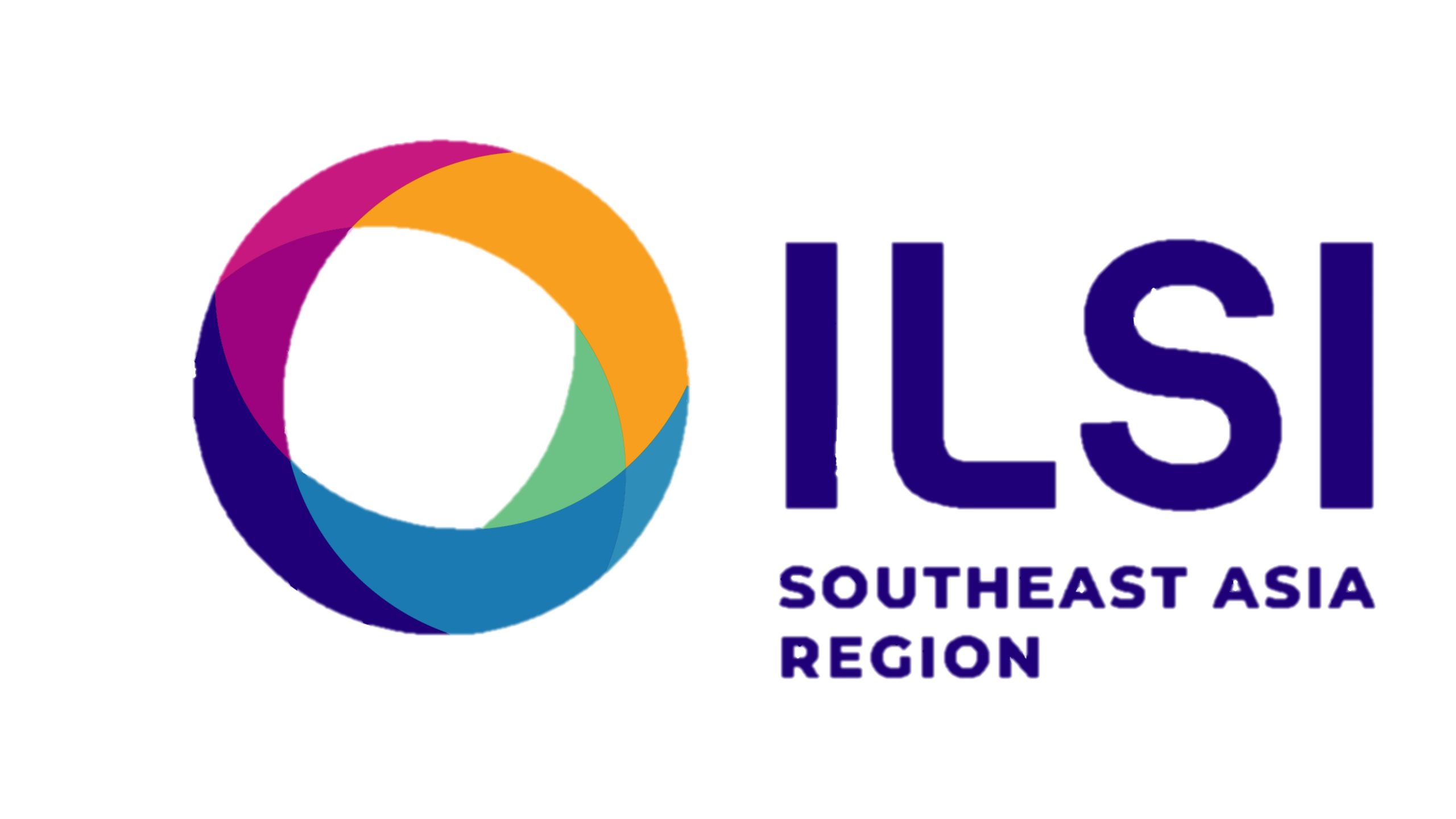
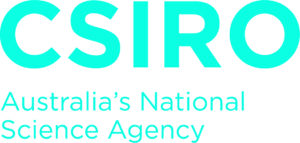
Drop by our exhibition booth at #11!

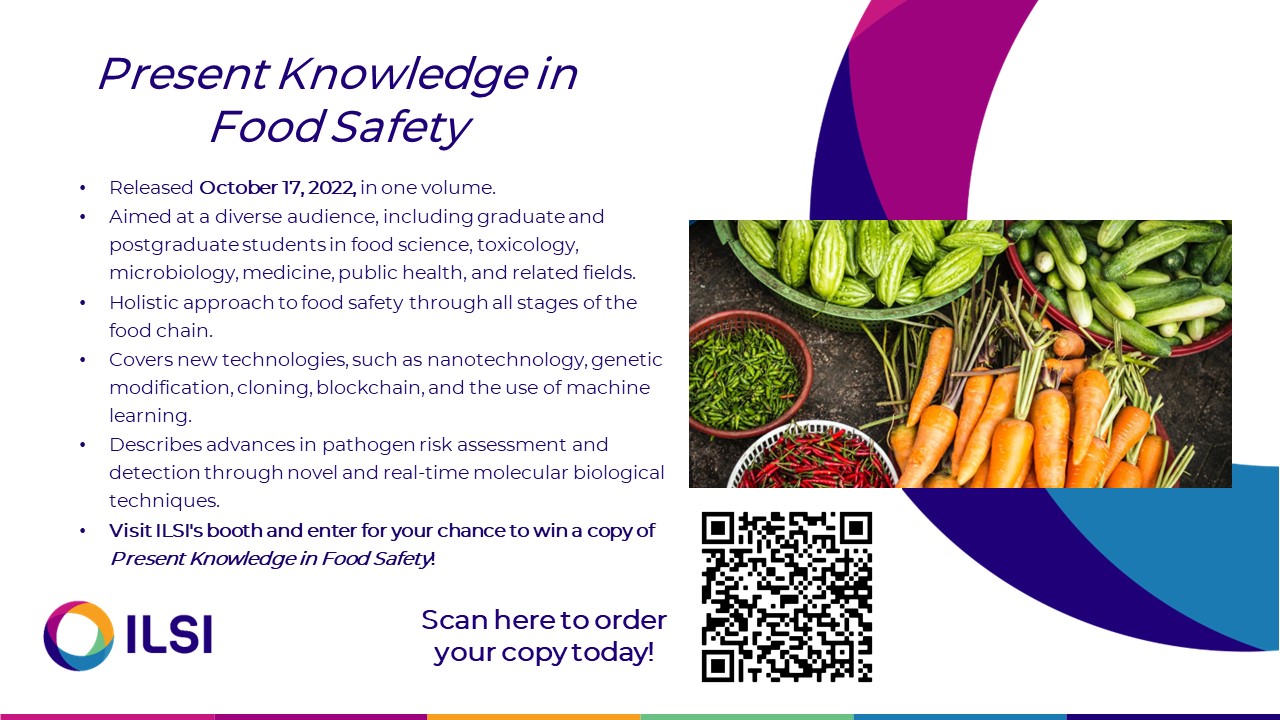
Ready to find out more?
Check out more on IUFoST 2022 Website.